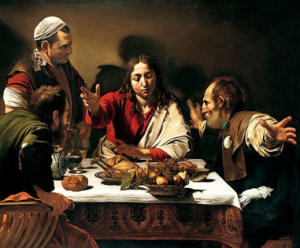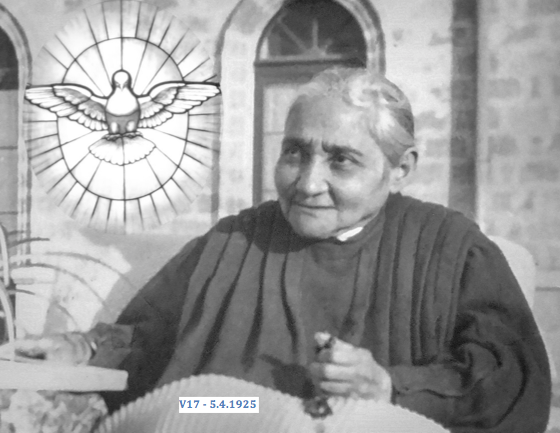
The Lord on the Road of Men
4/27/2017
Dear brothers and sisters, Fiat!
Like at Emmaus the Lord goes down on the road of man to become his travel companion and enliven him with hope in his journey. The scene of Emmaus is a masterpiece of liturgical and missionary catechesis. In it we can see the itinerary of two disciples who left Jerusalem as they felt deluded and disappointed. Then they went back there and left again, with joy and confidence, to bear witness because they met the Crucified and Risen Christ, who is the explanation of the whole of Scripture and eternal presence among us in the sacrament of the “broken bread”.
The scene of Emmaus also reveals how Jesus can’t stand to stay away from men but ardently wishes to stay with them. He is not yet ascended into heaven and already, on the same evening of the Resurrection, here he is looking for the company of men.
In the title that Jesus wanted to give to the writings of the servant of God Luisa Piccarreta we can see the task Luisa received from Jesus, that is, ‘the call of the creature to the Order, the Place and the Purpose for which he was created by God’.
On December 6, 1937, Jesus declared the joy and love that He experiences whenever man returns what God has accomplished for him in Creation and Redemption.
As soon as the creature starts to call, Jesus rings the ‘little bell’ to the celestial residents and to those of the earth, and I stop ringing only when I see that all of them have run into your act.
When God sees them all together in that act, He places Himself, all attentive, in loving waiting and how beautiful it is to hear in that act innumerable voices saying to Him: ‘We love You, we love You. We recognize You in Your works! How much You loved us. So, for everything, we return your Love!’
God, wounded by so many voices, pours out more seas of Love, covering and investing everyone with such joy and happiness that all remain enraptured, enjoying one more Paradise by means of this creature.
The one who lives in the Divine Will gives Him the field for new works, and makes His Love gush out more strongly; not being able to contain It, God pours out new seas of Love, to love the creature.
The thing most urgently needed by God is the company of the creature. God does not want to be the isolated God, or to keep her far away from Him – isolation has never brought great works or happiness. Company matures the birth of good and makes the most beautiful works arise to the light. This is why God created so many things: to have the opportunity to have her company many times for as many created things.
And the creature who lives in the Divine Will accompanies God – always; she receives God’s creative act, and God receives the glory and the return of created love.
God keeps her company in the celestial spheres, in the shining sun, in the blowing of the wind, in the air which all breathe, in the murmuring of the sea – everywhere and in every place she follows Him, she defends Him and returns Love to Him. She cannot live without God – without loving Him, and God cannot be without her, so – jealous, He holds her tightly to His divine womb.
The company of the creature is so dear to Him that He forms with her His recreation; He makes the most important decisions for His glory and for the good of the human generations; He accomplishes His designs while being in her company. God’s Love rises to new life, and keeps making up new devices of Love and new surprises in order to chain the creature to His love – always and more. If it wasn’t for her company, with whom could God pour Himself out?
Over whom could He form His designs? Where could He place His ever rising Love? Without the company of the creature, God’s goods would be depressed, without being able to give life to what He wants to do for love of the creatures. So, how necessary her company is to God’s Love, to His Works – to the fulfillment of His Will.
“In the sacrament of the altar, the Lord meets us, men and women ….and becomes our companion along the way. (Pope Emeritus Benedict XVI)
